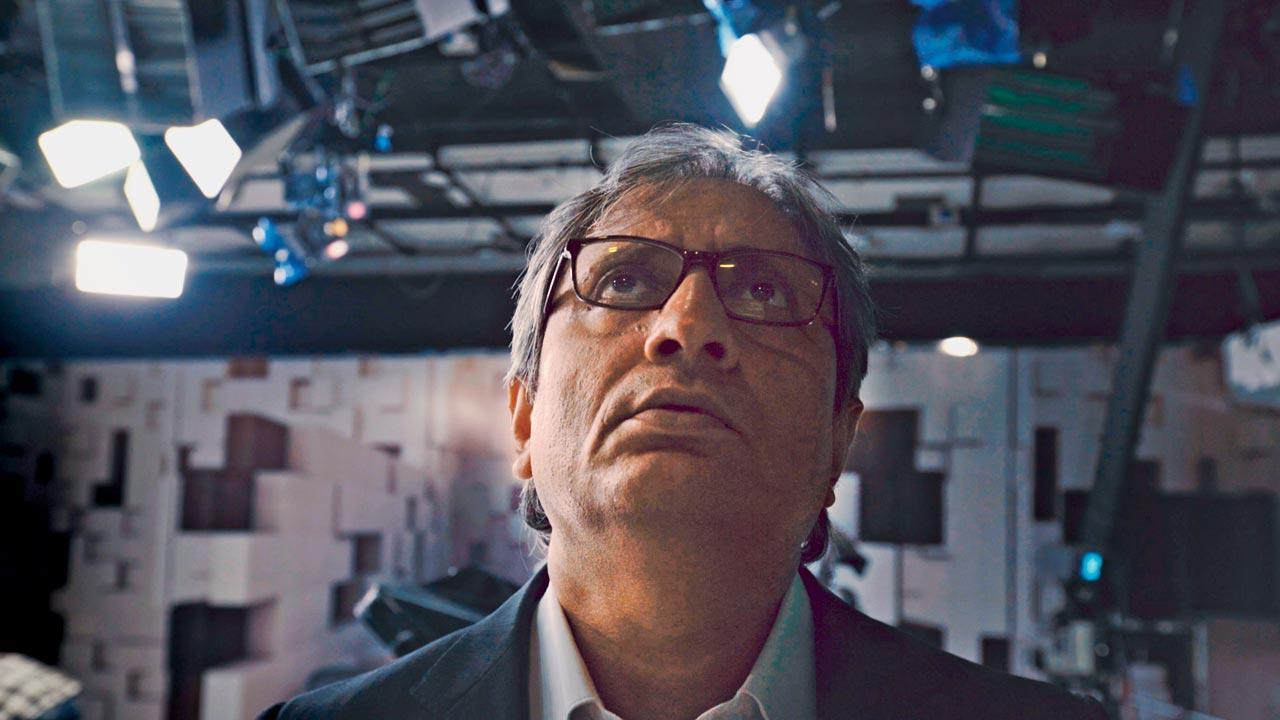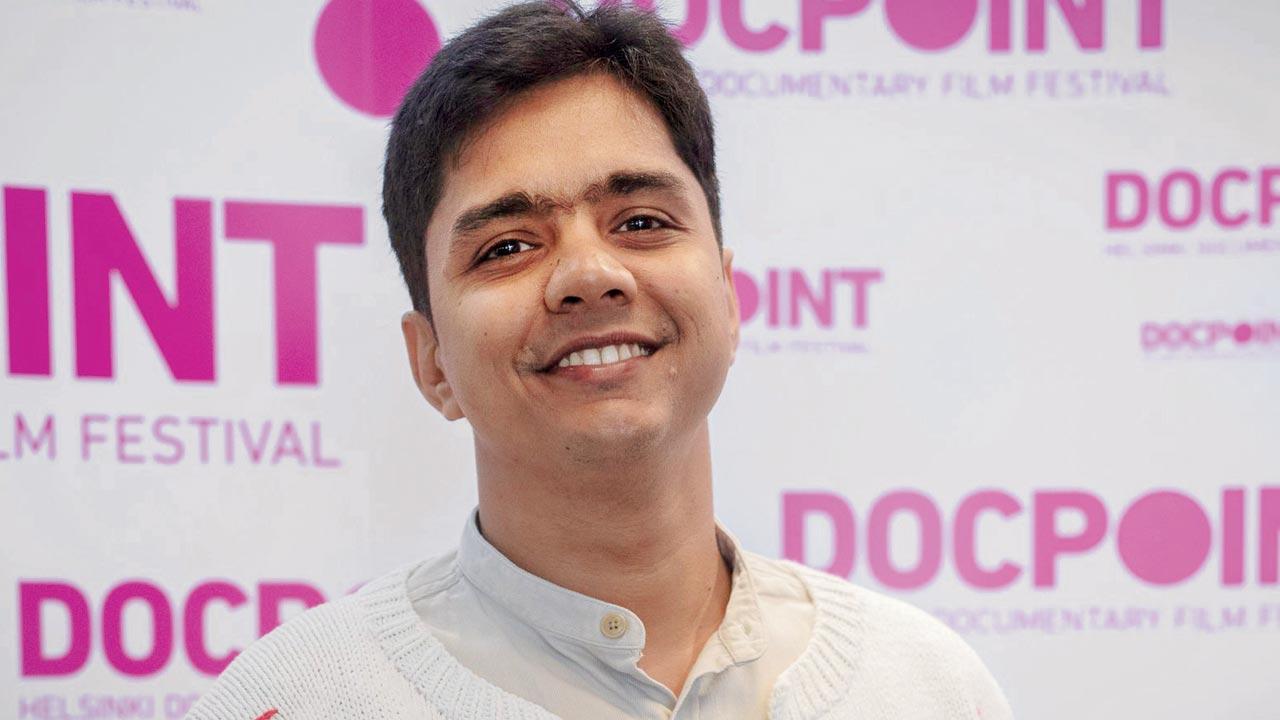As he wins a Peabody Award for As We Watched, Vinay Shukla tells us why him winning the award means there is hope for documentary makers all across India

A still from As We Watched, which followed journalist Ravish Kumar during his last days at NDTV
In a sequence from Vinay Shukla’s documentary While We Watched, his protagonist the renowned TV anchor Ravish Kumar and a senior producer get into an ugly spat during an ongoing broadcast. Kumar, known for his eloquence and grace, looks dishevelled and flustered. “It was a pressure cooker moment and I wanted to capture the vulnerability and challenges of working in a newsroom,” Shukla says, about the scene that offers Kumar, otherwise an impresario of diction and gravitas as a crumbling mess of nerves. While We Watched follows Kumar’s last days at NDTV, as an intrepid but defiant TV journalist, trying to both stay afloat as a body of ideas and as a medium for public service.
ADVERTISEMENT
Kumar, who has since 2022 migrated to YouTube to continue his work as an independent journalist, repeatedly instructed his audience to stop watching TV news. “It’s what made him a fascinating protagonist. As this unique media icon, who was openly critical of his own ilk and an audience willing to indulge the melodrama that prime time news has turned into,” Shukla says from Goa, where he lives and works. Shukla debuted as an actor, in Anand Gandhi’s (also a long-time collaborator) seminal Ship of Theseus (2012). In the year of the film’s release, he decided to pick up a camera to follow the India Against Corruption movement; an endeavour that would culminated in An Insignificant Man (2016), his first feature length documentary film and an intimate peek into the early days of what we now know as the Aam Aadmi Party (AAP).
 Vinay Shukla
Vinay Shukla
In some sense, both of Shukla’s films have now portrayed contrasting sides of polity – the newsmakers and the “newsbreakers”. “On both sides, I think there is this quality of having a really sound reading of the roots. That ear to the ground and the ability to articulate complex, at times inaccessible ideas, clearly is what sets these people apart. It’s what fascinates me most about them,” Shukla says. Kumar, known for his captivating oratory casually enthralled and hypnotised audiences on an everyday basis. How does a filmmaker then pick needles out of a stack of needles, the line or the moment that makes the cut from a roughly two-year long shoot? “That was one of the challenges. Kumar’s expression is so deep and cogent, it’s hard not to get carried away with the quality of how he expresses. But I tried to focus on the things that would unearth that inner turmoil or add to the portrait I was trying to capture,” he adds. Throughout the film Kumar repeatedly engages with threats and awkward social encounters. A viewing experience as unnerving as it is also revealing of the curt nature of our political discourse.
The Indian documentary scene has been having a bit of a moment. Both While We Watched and last year’s Oscar-nominated All That Breathes (directed by Shaunak Sen) recently won the Peabody Award, a highly coveted American prize for long-form storytelling that has a significant social component. “I think it’s inaccurate to only judge a scene through the people who have made it or have found some sort of recognition. But the fact that someone like me could do it and has done it - at great personal expense - gives me the confidence to say that it is doable,” Shukla says. Earlier this year, Canadian director Nisha Pahuja’s To Kill A Tiger, became the third India-set feature length documentary, in four years to be nominated at the Academy Awards.
But though the seeds of imagination are being sown, nourishing them remains an ordeal. Filmmakers still depend on grants or kinder markets outside the country to make a certain kind of film. Shukla, to his credit, has dabbled in other pockets of creativity to make the commerce of life work. He is also the co-producer of Shasn, a wildly entertaining board game that deals in policy and politics and has now found its market around the world.
Because of its political texture, While We Watched has had to wait a considerable time to land a distribution deal in the country of its origin. In fact, not many believed it would ever get released. Which is as disappointing as it is puzzling, because as far as popular documentaries go, it’s easily the most sought after piece of non-fiction filmmaking to have come out of the country. At least, its repeated reappearances on the internet, as a grainy pirated copy support that theory. “Of course it’s challenging,” Shukla says, “But I have had less trouble sourcing funds for this project than I had for the last film. The economics of documentary filmmaking still don’t work, but it’s a minor miracle that a spate of documentaries and stories from India have found its audience on a global scale.”
 Subscribe today by clicking the link and stay updated with the latest news!" Click here!
Subscribe today by clicking the link and stay updated with the latest news!" Click here!







